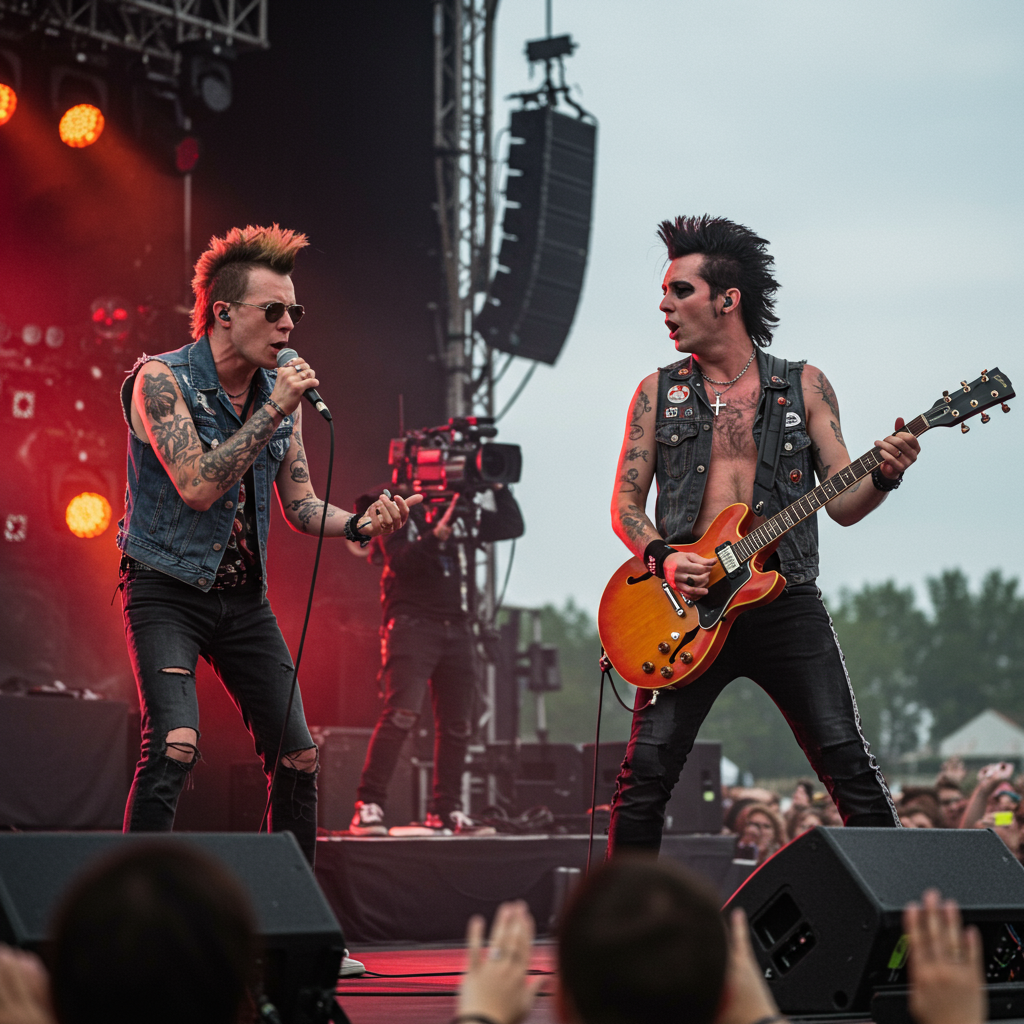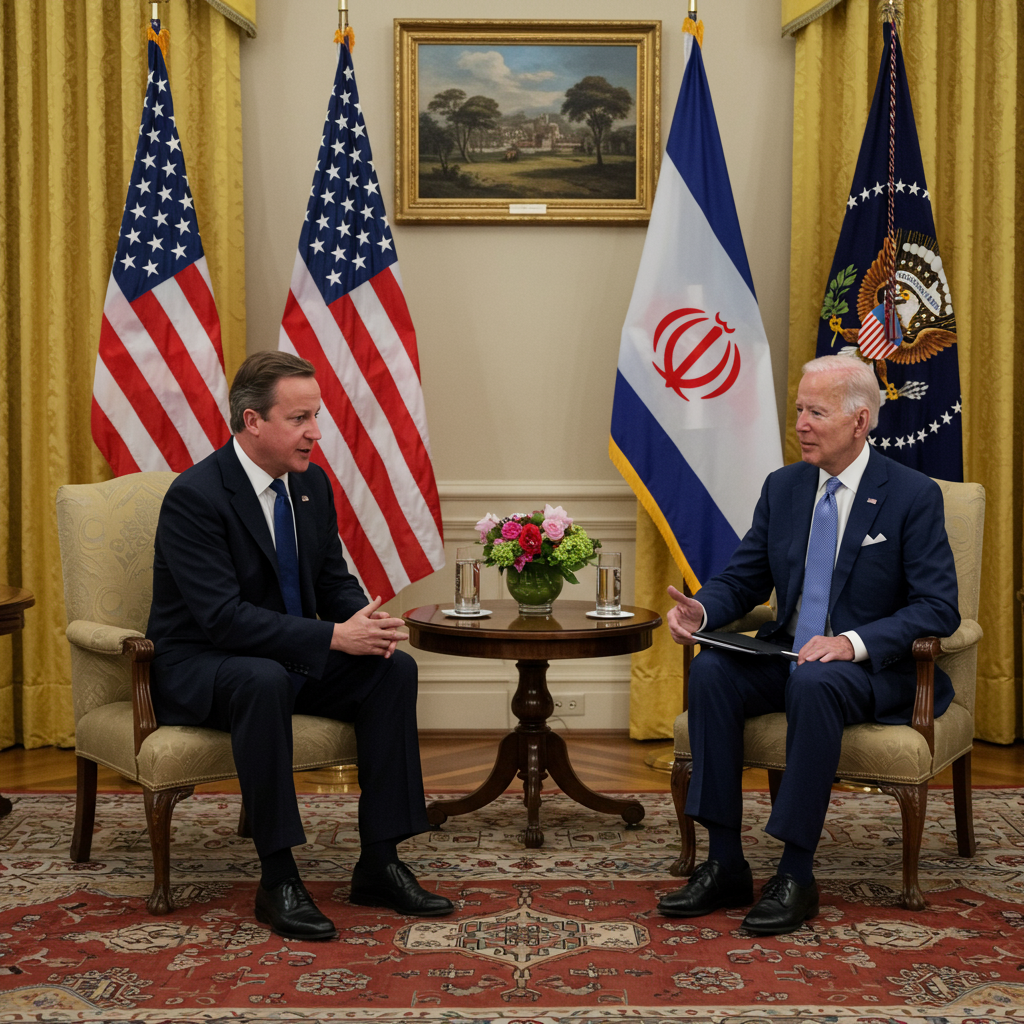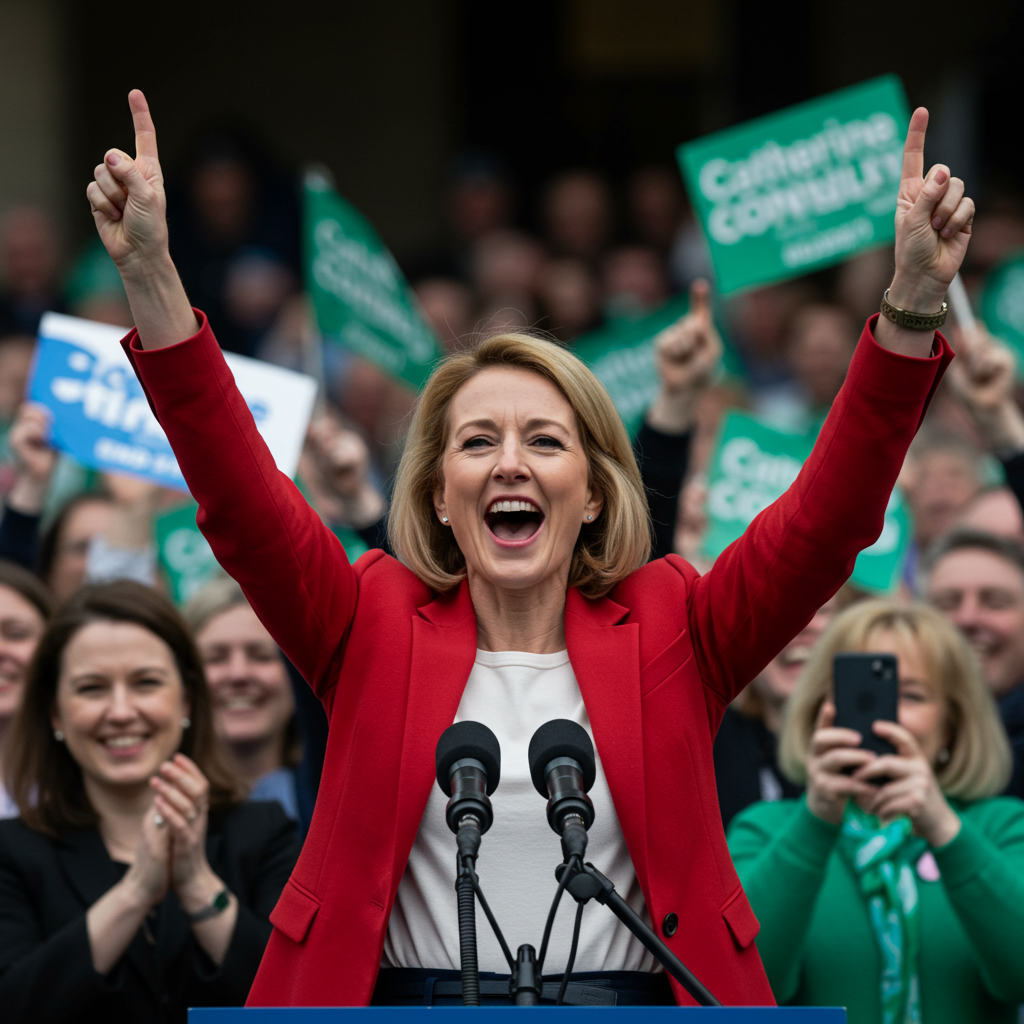The UK government has issued a strong condemnation following the live broadcast on the BBC of controversial chants during a performance by punk duo Bob Vylan at Glastonbury Festival. The incident, which occurred on the West Holts stage, involved calls targeting the Israeli military and has sparked significant backlash, prompting official reviews by both the government and police. This event reignites debates surrounding political expression at major cultural events and the responsibilities of public broadcasters.
Controversial Chants Spark Outrage at Glastonbury
During their set, the politically charged rap punk duo Bob Vylan led thousands of festival-goers in chants that quickly drew widespread criticism. Among the most prominent shouts were “Free, free Palestine” and the highly provocative call, “Death, death to the IDF,” referring to the Israel Defense Forces. Lead singer Bobby Vylan also incorporated the widely debated slogan “From the river to the sea, Palestine must be, will be, free” into the performance. The set was visually underscored by the display of numerous Palestinian flags among the crowd and a large screen message on stage that directly challenged the BBC’s reporting, stating: “Free Palestine. United Nations have called it a genocide. The BBC calls it a ‘conflict’.” Bobby Vylan also reportedly made critical remarks referencing a former “Jewish record company boss,” adding to the controversial nature of the performance.
Government Demands Explanation from BBC
The live airing of these chants by the BBC prompted an immediate and forceful reaction from the UK government. A government spokesperson confirmed that Culture Secretary Lisa Nandy contacted BBC Director General Tim Davie directly. Nandy sought an “urgent explanation” regarding the “due diligence” procedures the broadcaster undertook before airing Bob Vylan’s performance live. The government spokesperson described Bob Vylan’s comments as “threatening” and strongly condemned the broadcast. Furthermore, the government welcomed the BBC’s subsequent decision to remove the performance from its on-demand service, BBC iPlayer, preventing it from being rewatched.
BBC and Festival Respond to Backlash
Responding to the outcry, a BBC spokesperson acknowledged that some of the comments made during the set were “deeply offensive.” The broadcaster stated that during the live stream on iPlayer, an on-screen warning was displayed about the presence of “very strong and discriminatory language,” mirroring the situation on stage. Despite the initial live broadcast, the BBC confirmed it had no plans to make Bob Vylan’s set available on demand. This decision contrasts with their handling of other acts and highlights the sensitivity surrounding the performance.
Glastonbury Festival management also issued a statement following the controversy. The festival explicitly stated that it “does not condone hate speech or incitement to violence of any kind from its performers.” While defending its role as a platform for diverse artists, the festival made clear its stance against offensive and inflammatory content.
Police Investigation Launched into Performances
Adding a legal dimension to the unfolding controversy, Avon and Somerset Police announced they are reviewing video evidence from the West Holts stage. The police confirmed they are assessing comments made not only by Bob Vylan but also by the Irish rap trio Kneecap, who performed immediately after Bob Vylan on the same stage. Officers will analyze the footage to determine whether any criminal offences may have been committed that would necessitate a formal criminal investigation. This review underscores the potential legal ramifications of public statements made at large-scale events, particularly when broadcast widely.
Broader Context: Kneecap and Political Expression
The controversy surrounding Bob Vylan unfolded just before Kneecap’s scheduled performance. Kneecap has faced its own share of controversy in recent months. One of the group’s members, Liam Óg Ó hAnnaidh (performing as Mo Chara), was previously charged under the Terrorism Act. This charge relates to allegations he displayed the flag of proscribed terrorist organisation Hezbollah and chanted pro-Hamas slogans at a gig the previous year. He has denied the charge and is currently on bail.
Despite the BBC’s decision not to live stream Kneecap’s set in real time due to these prior controversies, Kneecap’s performance at Glastonbury was also highly charged. The group reportedly led chants against UK Prime Minister Sir Keir Starmer, who had earlier described their Glastonbury appearance as “not appropriate,” and also included “Free Palestine” chants. The police review includes assessing footage from Kneecap’s set alongside Bob Vylan’s. This intertwined context highlights the complex challenges faced by festival organisers and broadcasters in navigating political expression and potential incitement in live performance settings.
Reactions from Political Figures and Community Groups
The fallout from Bob Vylan’s performance drew sharp reactions from various groups and individuals. The Embassy of Israel in the UK expressed being “deeply disturbed” by what it termed “inflammatory and hateful rhetoric.” The embassy argued that while freedom of expression is crucial, chants like “Death to the IDF” and “From the river to the sea” cross a line into incitement, advocating for the dismantling of Israel and the elimination of Jewish self-determination. They urged the festival, artists, and UK leaders to denounce this rhetoric and reject all forms of hatred.
Within the Jewish community, the incident caused significant distress. One anonymous mother shared her horror at her teenage son being exposed to clips of thousands chanting for the “genocide of Jewish people,” demanding apologies from both the BBC and Glastonbury and calling for the bands involved to be banned. Prominent UK figures also weighed in, with Conservative leader Kemi Badenoch describing the performance as “grotesque” and “incitement,” asserting that glorifying violence is not merely “edgy” protest. Former Director of BBC Television, Danny Cohen, suggested the BBC should have anticipated and prevented the broadcast. Labour Friends of Israel called the chants “disgusting,” particularly in the context of the October 7th massacre, arguing it shows the extremists’ goal is “death and destruction.”
Online reactions were mixed, with the chants drawing both condemnation and support. Bobby Vylan himself appeared defiant, reportedly posting a picture with ice cream on social media and writing, “While zionists are crying on socials, I’ve just had late night (vegan) ice cream.” Glastonbury organiser Emily Eavis defended the festival’s tradition of hosting diverse viewpoints, stating it remains a platform for artists worldwide and welcomes everyone, seeking to balance artistic freedom with the need to avoid hate speech.
This incident highlights the delicate balance between freedom of expression, the potential for incitement, and the responsibilities of major cultural institutions and broadcasters in a politically charged global climate.
Frequently Asked Questions
What specific chants caused the controversy at Glastonbury?
The controversy primarily stemmed from chants led by the band Bob Vylan during their performance on the West Holts stage. These included “Free, free Palestine,” “Death, death to the IDF” (referring to the Israel Defense Forces), and the slogan “From the river to the sea, Palestine must be, will be, free.” These specific phrases, particularly “Death to the IDF,” were widely condemned as deeply offensive and potentially inciting violence.
How did the UK government and BBC respond to the live broadcast?
The UK government responded with a strong condemnation of the chants and their live broadcast by the BBC. Culture Secretary Lisa Nandy contacted the BBC Director General to demand an “urgent explanation” regarding their pre-broadcast checks. The government welcomed the BBC’s decision to remove Bob Vylan’s performance from BBC iPlayer. The BBC acknowledged the comments were “deeply offensive” and stated they displayed an on-screen warning during the live stream about strong and discriminatory language.
Is there a police investigation into the Glastonbury performances?
Yes, Avon and Somerset Police confirmed they are reviewing video footage from the West Holts stage performances by both Bob Vylan and Kneecap. The police are assessing the comments and chants made by both groups during their sets. This assessment is to determine if any criminal offences may have been committed that would require a formal criminal investigation by the police force.



